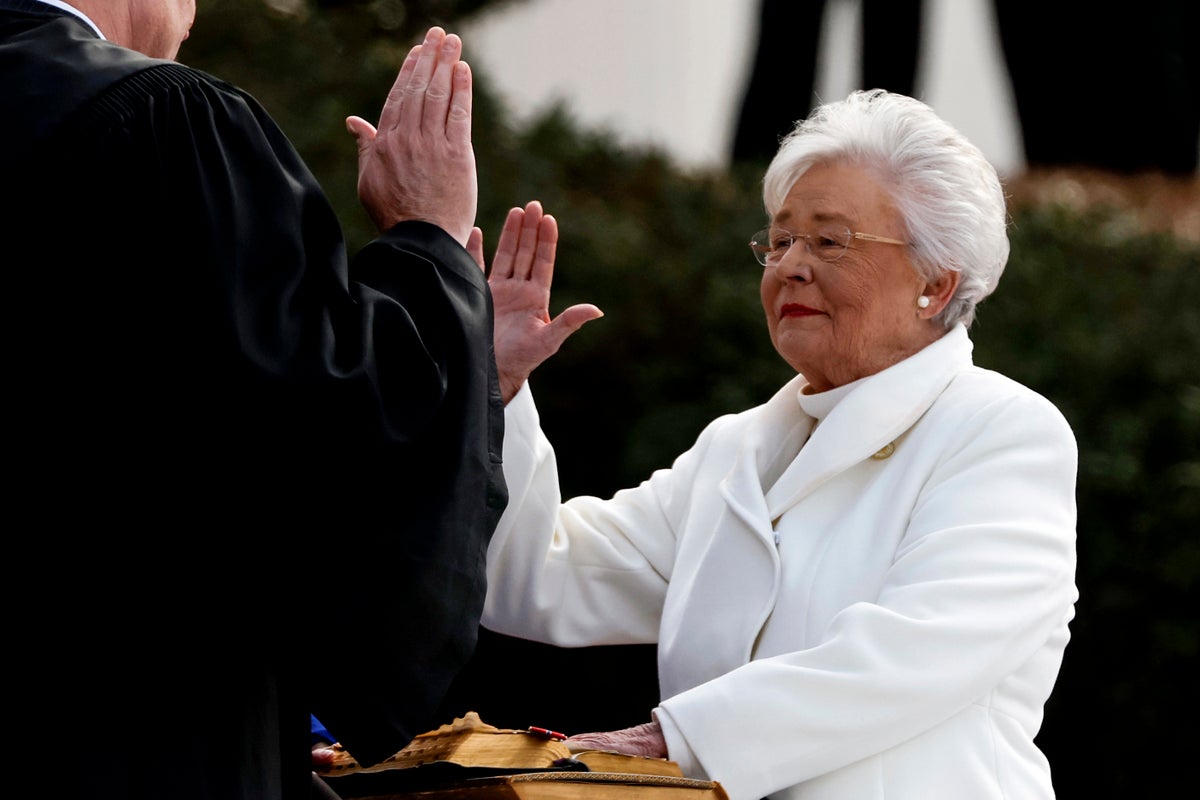
Alabama has changed death penalty procedures to give the prison system more time to carry out executions — a move that comes after a string of troubled lethal injections in the state — and also eliminated an automatic review for trial errors in death penalty cases.
Alabama Gov. Kay Ivey's office called the time window change a “win for justice” and supporters said the appeal change would ease the burden on the court system. But a noted death penalty lawyer said the changes end a crucial avenue of review and increase the likelihood of “more cruelty and potential torture.”
The Alabama Supreme Court announced the changes to appellate procedure last Friday. At Ivey's request, the court abolished the previous one-day time frame to carry out a death sentence. Instead, the governor will set a window of time for the execution. A divided court in a 6-3 decision also eliminated an automatic “plain error review” where the Alabama Court of Criminal Appeals automatically reviews death penalty cases for a clear error at trial even though the defense lawyer did not object. Justices said judges on the appeals court may undertake the review, but are no longer required to do so.
“I think the combination of these two rules increases the likelihood that we’re going to see more wrongful convictions, more unjust sentences and more cruelty and potential torture,” said Bryan Stevenson, founder of the non-profit Equal Justice Initiative.
Stevenson said that nearly 40% of the reversals in Alabama death penalty cases have come under the plain error review. He said the rule has been in place since the death penalty was reinstated in Alabama in 1976, and its repeal is “shocking.”
Justice Jay Mitchell wrote in a concurring opinion that the change will relieve the court's burden so they are no longer required to “scour the record in search of such errors, nor will it be compelled to analyze claims of error." He said lawyers for death row inmates can present the issues in other appeals.
“Plain-error review requires already overloaded appellate courts to spend hundreds, if not thousands, of hours per case scrutinizing trial-court records for possible errors and then explaining why those errors are (or are not) reversible,” Mitchell wrote.
However, two justices who are former members of the Court of Criminal Appeals dissented in the decision.
Justice Kelli Wise wrote that she could not support a complete repeal despite the time required. "In these cases, the defendants’ very lives are at stake, and I believe that such cases are entitled to heightened review on direct appeal," Wise wrote.
The court also granted Ivey's request to expand the amount of time that Alabama has to carry out an execution. Ivey asked for the change after announcing a “top-to-bottom” review of execution procedures. The review came after an unprecedented third failed lethal injection in the state following problems with intravenous lines and late-running appeals.
Death warrants issued by the Supreme Court had been limited to a single day, resulting in a midnight deadline to get the execution underway. Now, after the court issues a death warrant, the governor will set a time window to carry out the execution. Justices left it up to the governor to decide how long that time window will be.
“I view this as a win for justice. As we initially interpret the order, it secures an extended time frame, which was a primary request of the governor’s," Ivey spokeswoman Gina Maiola said in an email. She said the governor's staff will review the order with the prison system.
Stevenson says while other states give longer than a day, no state allows a governor that kind of power. He said it would allow already problematic executions to go on for longer.
The state in November called off the execution of Kenneth Eugene Smith, which was the state’s second such instance of being unable to put an inmate to death in the preceding two months and its third since 2018. The state completed an execution in July, but only after a three-hour delay caused at least partly by the same problem with starting an IV line.







